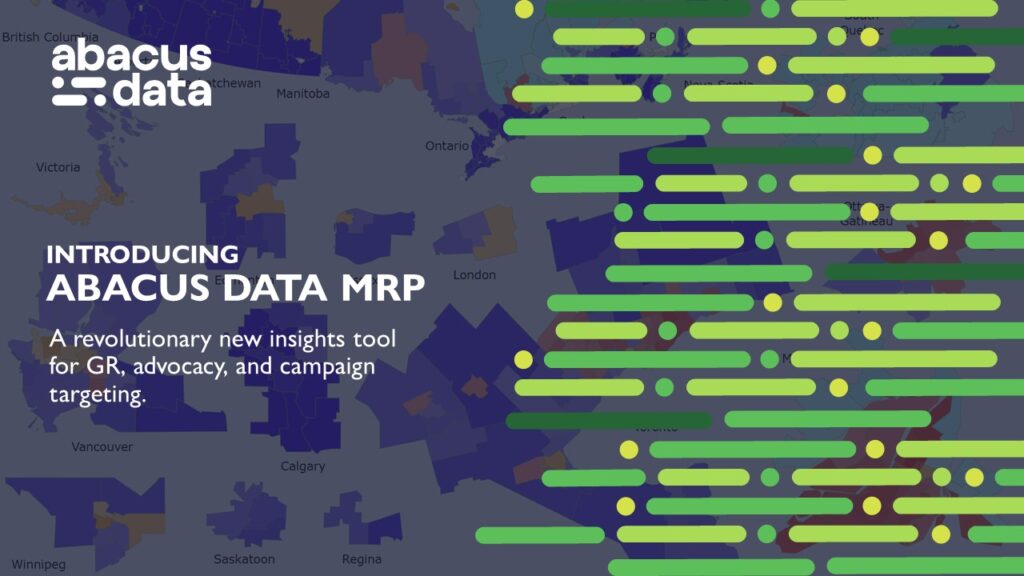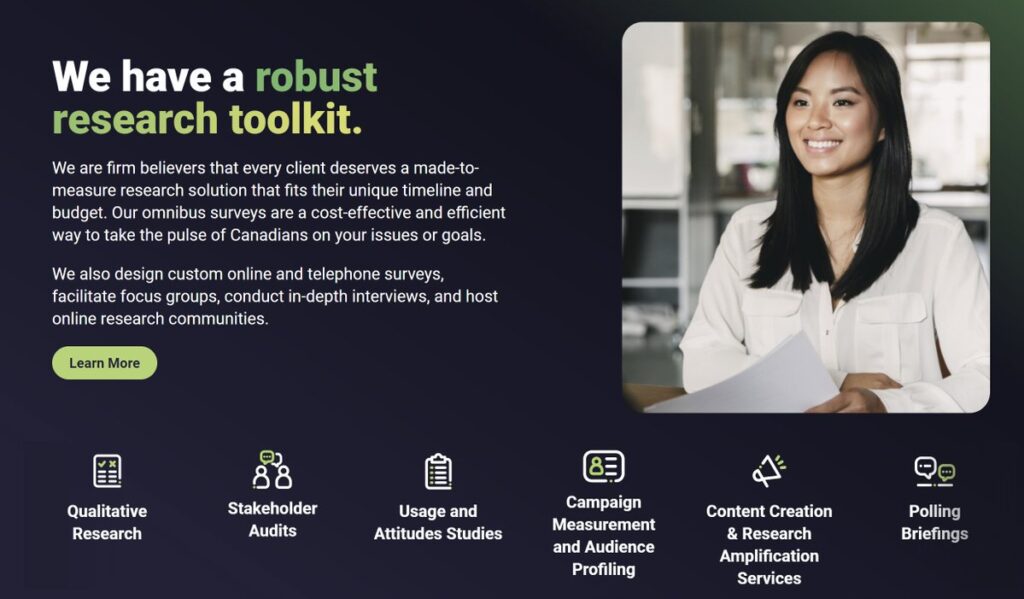73% of Canadians Say Non-Profit and Co-op Housing Can Help Solve the Housing Crisis
Part four of our series on Canada’s housing landscape focuses alternative housing solutions, including non-profit and co-op housing. This study surveyed 6,000 Canadian adults (18+) between September 26 and October 9, 2024, in partnership with the Co-op Housing Federation of Canada (CHF Canada), the Canadian Alliance to End Homelessness (CAEH), and the Canadian Real Estate Association (CREA).
This report highlights growing interest in non-profit and co-op housing as affordability challenges and the desire to have a stable place to live push Canadians toward considering alternatives to renting or owning. With the demand for alternative solutions rising, strong public support exists for government action to expand these housing options, signaling a shift beyond the private market.
Top Insights
- Changing Perceptions: After learning more about non-profit and co-op housing, 73% see non-profit and co-op housing as a viable solution, citing affordability (57%), community benefits (46%), and long-term stability (45%).
- High Demand, Low Supply: 60% believe there isn’t enough non-profit and co-op housing in their communities, and 61% say increasing availability should be a top priority.
- Call for Government Action: 54% support tying federal funding to housing development, while 53% back direct government investment in new non-profit and co-op housing.
Exploring Alternative Housing Options
Nearly half (46%) of Canadians who do not currently own a home but aspire to do so indicate that they have considered alternative housing options in the past year. Interest is highest among younger Canadians aged 18-29 (50%) and 30-45 (51%), as well as those living in urban areas (50%). Among those exploring alternatives, 1 in 4 note that they have considered non-profit and co-op housing (24%).

This growing interest reflects a shift in attitudes toward homeownership, particularly among younger and urban Canadians, recognizing that housing needs can be met in a variety of ways. Non-profit and co-op housing provide stable, permanent places to live, which is the most cited reason for wanting to own a home (56%).

Strong Support for the Non-Profit and Co-op Models Exist
While 78% of Canadians are familiar with the concept of non-profit and co-op housing, 64% admit to lacking a detailed understanding of how these housing models operate.

After learning more, 73% see these models as viable solutions to the housing crisis. Supporters highlight several key benefits, including affordable housing options for low- and middle-income individuals (57%), fostering community and shared responsibility (46%), and promoting long-term stability (45%). Notably, 43% believe it reduces the influence of corporate landlords and limits real estate speculation, highlighting its potential as a tool for creating a fairer housing market.


Among aspiring homeowners, the role of education becomes even clearer. A third (32%) say they would be more interested in non-profit and co-op housing if they had more information, and 41% express openness to non-profit and co-op housing while exploring other alternatives. Only a small minority (13%) feel that additional information would not impact their interest.

Canadians Call for Increased Availability of Non-Profit and Co-op Housing
60% of Canadians feel there are not enough non-profit and co-op housing options available in their communities. This sentiment is particularly pronounced among residents in Quebec (68%), British Columbia (61%), and Atlantic Canada (60%), highlighting the perceived scarcity of these housing solutions across the country.

Reflecting this concern, 61% of Canadians believe increasing the number of non-profit and co-op homes should be a high priority. This view is especially strong among Liberal Party of Canada (67%) and NDP (70%) supporters, along with 55% of Conservative Party of Canada voters. The support highlights a growing recognition of the urgent need for more affordable and accessible housing options nationwide.

Canadians See Non-Profit and Co-op Housing as Part of the Solution and Call for Government Action
While 34% of Canadians believe non-profit and co-op housing should be a primary focus in providing affordable options, a larger share (43%) think it should complement other market-based solutions. Only 10% see it as an unviable option for most people, indicating broad recognition of its role in addressing housing challenges.

Public opinion suggests a strong desire for government action to expand non-profit and co-op housing, with a focus on strategic funding and policy support. Over half (54%) want federal funding tied to provincial and municipal housing commitments, while 53% back direct government investment in new non-profit and co-op housing developments. Prioritizing public land (50%) and offering provincial loans and grants (48%) are seen as key strategies to increase this type of supply, while another 48% believe the federal government should empower non-profits and co-ops to purchase private rental properties. The broad support reflects a growing belief that market-driven solutions alone won’t resolve the housing crisis, and that government-led initiatives will be essential to scaling up non-profit and co-op housing across Canada.

The Upshot
As housing affordability remains a pressing concern in Canada, a growing interest in non-profit and co-op housing signals a shift in how Canadians think about homeownership. Overall, these findings highlight an urgent need for action.
With strong public support for expanding non-profit and co-op housing, governments must invest in solutions, from tying federal funding to housing commitments to making public land available for non-profit and co-op developments. Market-driven solutions alone won’t solve the crisis – proactive, government-backed initiatives are essential to ensuring more Canadians have stable, affordable housing through non-profit and co-op options. Greater awareness and understanding of the non-profit and co-op housing models should underpin these efforts. This presents a clear opportunity for policymakers, housing advocates, and community organizations to work together, to educate the public on these models by bringing them to life through dedicated investment and initiatives.
The path forward is clear: Canadians are open to solutions beyond the traditional housing market, but they need better access, stronger government action and more information to make non-profit and co-op housing a viable reality. With rising demand and widespread support for policy-driven expansion, this presents an opportunity to rethink how housing is built, funded, and sustained in Canada. By bridging the funding, supply and awareness gap, long-term affordability can be provided through the growth of non-profit and co-op housing. This can play an important role in creating a more stable and equitable housing future for Canadians. . This can play an important role in creating a more stable and equitable housing future for Canadians.
METHODOLOGY
The survey was conducted with 6,000 Canadian adults from September 26 to October 9, 2024. A random sample of panelists were invited to complete the survey from a set of partner panels based on the Lucid exchange platform. These partners are typically double opt-in survey panels, blended to manage out potential skews in the data from a single source.
The margin of error for a comparable probability-based random sample of the same size is +/- 1.27%, 19 times out of 20.
The data were weighted according to census data to ensure that the sample matched Canada’s population according to age, gender, educational attainment, and region.
This survey was paid for by the Canadian Real Estate Association (CREA), the Canadian Alliance to End Homelessness (CAEH), and the Co-operative Housing Federation of Canada (CHF Canada).
Abacus Data follows the CRIC Public Opinion Research Standards and Disclosure Requirements that can be found here: https://canadianresearchinsightscouncil.ca/standards/ this new environment, that difference is more important than ever.
ABOUT ABACUS DATA
We are Canada’s most sought-after, influential, and impactful polling and market research firm. We are hired by many of North America’s most respected and influential brands and organizations.
We use the latest technology, sound science, and deep experience to generate top-flight research-based advice to our clients. We offer global research capacity with a strong focus on customer service, attention to detail, and exceptional value.
And we are growing throughout all parts of Canada and the United States and have capacity for new clients who want high quality research insights with enlightened hospitality.
Our record speaks for itself: we were one of the most accurate pollsters conducting research during the 2021 Canadian election following up on our outstanding record in the 2019, 2015, and 2011 federal elections.
Contact us with any questions.
Find out more about how we can help your organization by downloading our corporate profile and service offering.

















































































